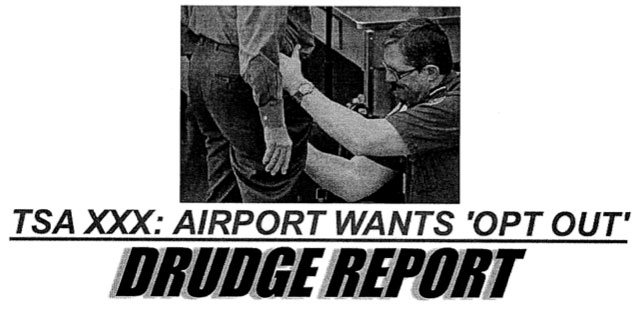A federal judge has put every Righthaven copyright infringement lawsuit in the state of Colorado on hold.
Righthaven, the Las Vegas company that brings infringement lawsuits on behalf of newspapers like the Las Vegas Review-Journal and the Denver Post, has sued 57 people (including an Ars Technica writer) in Colorado over a Post photo of an airport security patdown. Its tactics have been hugely controversial, since it sends no warning before filing suit, demands that it be given control over the infringing site's domain name, and threatens people with massive statutory damages unless they settle for a few thousand dollars. And Righthaven might not even control the copyrights over which it is suing.
Ever since a federal judge in Nevada forced the disclosure of the Righthaven operating agreement with Las Vegas Review-Journal publisher Stephens Media, defense lawyers have been on the attack. That's because the document only appears give Righthaven the power to sue over particular articles and images, while the “exclusive rights” available under US copyright law appear to be retained by the publisher.
The document governing Righthaven's agreement with the Post's publisher, MediaNews Group, has not yet been revealed, but defense lawyers expect that it contains a similar arrangement.

As one Colorado defendant put it recently in a motion, "This is not a true copyright ownership that Righthaven has acquired, or even an exclusive license—it is simply a cause of action. And it is exactly that narrow, exploitative interest that the Ninth Circuit held flew in the face of the Copyright Act and could not be the basis of a copyright infringement lawsuit."
According to this argument, since the publishers retain all rights to exploit the copyright apart from a lawsuit, they are the ones who control that copyright and thus must be the party that brings the lawsuit.
The motion continues, "Righthaven very likely is neither the owner nor exclusive holder of any rights in the copyrighted work underlying this lawsuit. As such, Righthaven has suffered no injury or other cognizable harm required for it to have standing Absent this very basic requirement of standing, there is no subject matter jurisdiction in this case, and this Court must immediately dismiss the case."
"Serious questions"
All of the Righthaven cases in Colorado are being heard by Judge John Kane, and he's taking these defense arguments seriously enough that he has just placed a stay on every one of the cases until the issue is resolved.
“Because there are serious questions as to whether my exercise of subject matter jurisdiction over Righthaven's claim of copyright infringement is proper, I think it most prudent to stay the proceedings in all pending cases in this District in which Righthaven is the named Plaintiff,” wrote the judge yesterday. “Should I find that I lack subject matter jurisdiction over Righthaven's claim of copyright infringement, it is likely that I will be required to dismiss all pending actions.”
The news comes only days after another defendant filed a class-action claim against Righthaven for "extortion litigation." Righthaven will have to deal with all of these claims before a federal judge who has so far shown little sympathy for the company's tactics.
Kane issued an order last month in which he laid into Righthaven, saying:
Neither The Denver Post nor Righthaven attempted to mitigate any damages by simply sending a cease and desist letter, nor any other request to discontinue the alleged infringement, prior to initiating this action. Instead, Righthaven has brought this lawsuit (and apparently 251 others) against alleged infringers, further exacerbating the Court’s overloaded docket. Righthaven’s motivation for avoiding the simple act of requesting that Mr. Hill cease and desist is simple, it is using these lawsuits as a source of revenue. Such abuse of legal process should be rejected.
The disapproval is so obvious that Righthaven even referenced it in a recent court filing. "Righthaven is certainly aware of the disdain this Court apparently has for its perceived business model," it said.
reader comments
41